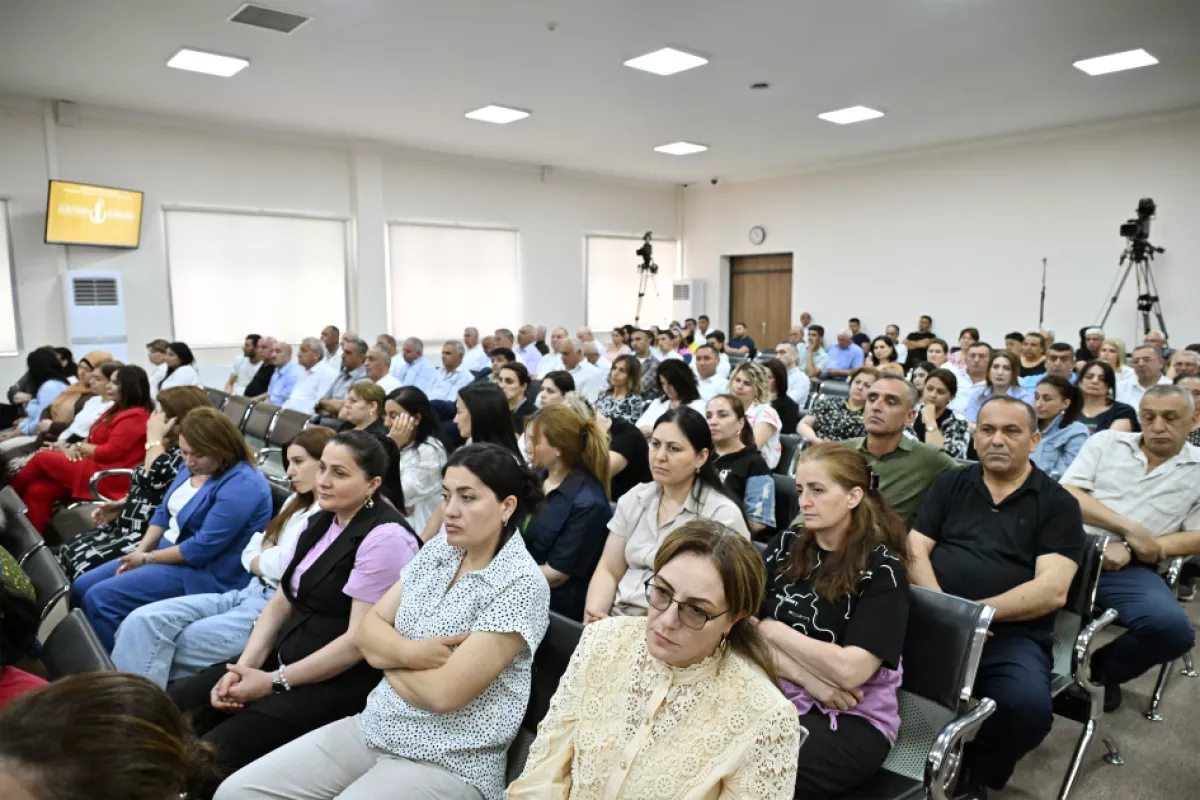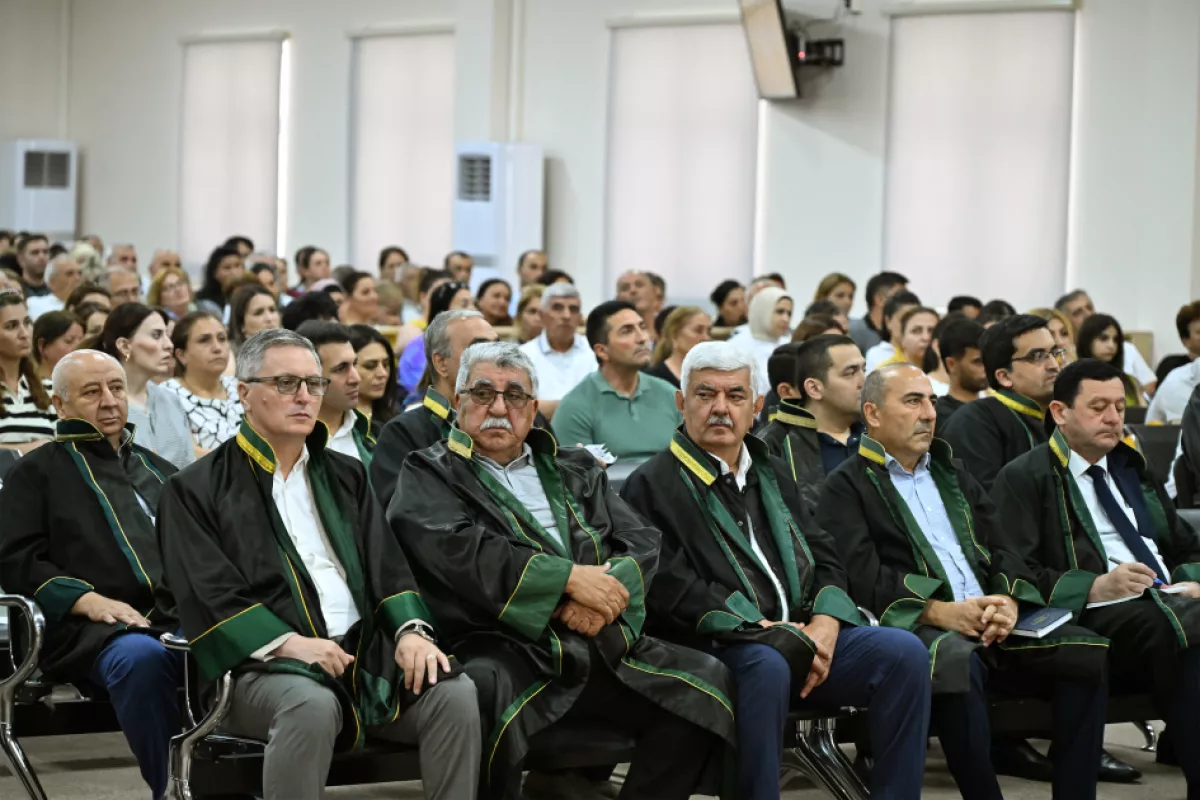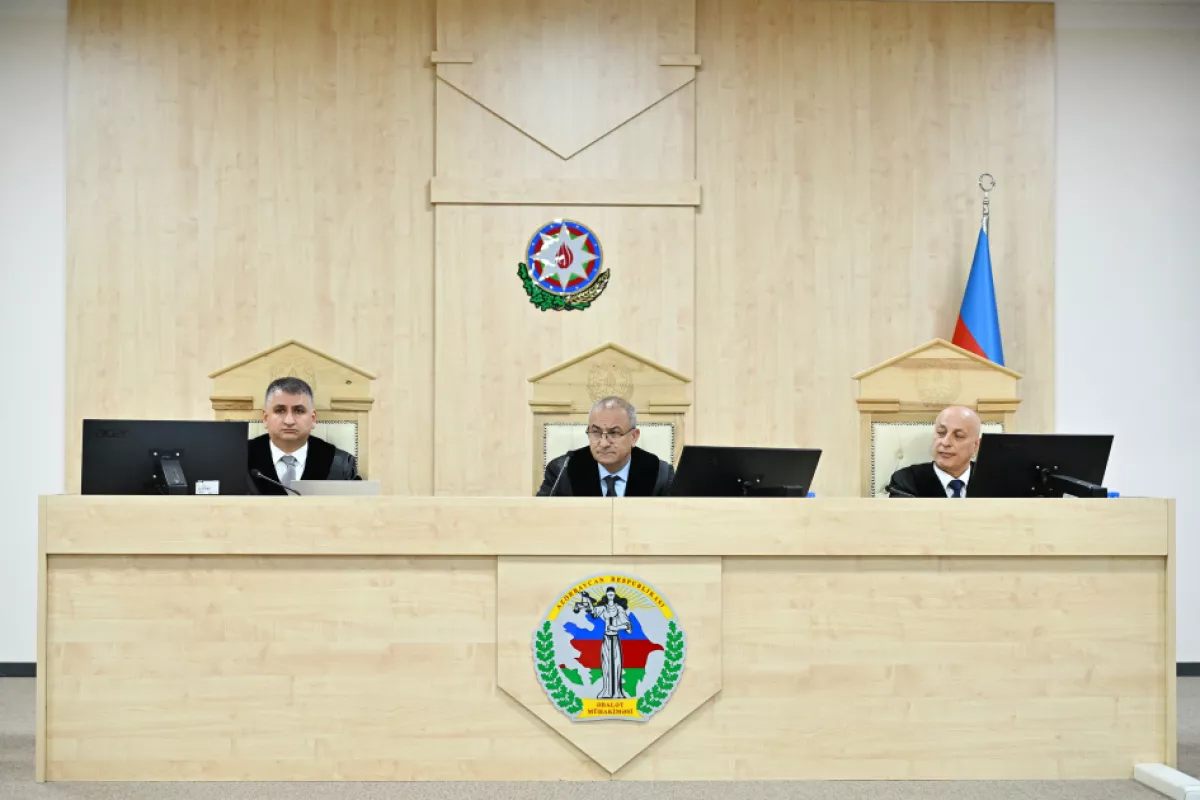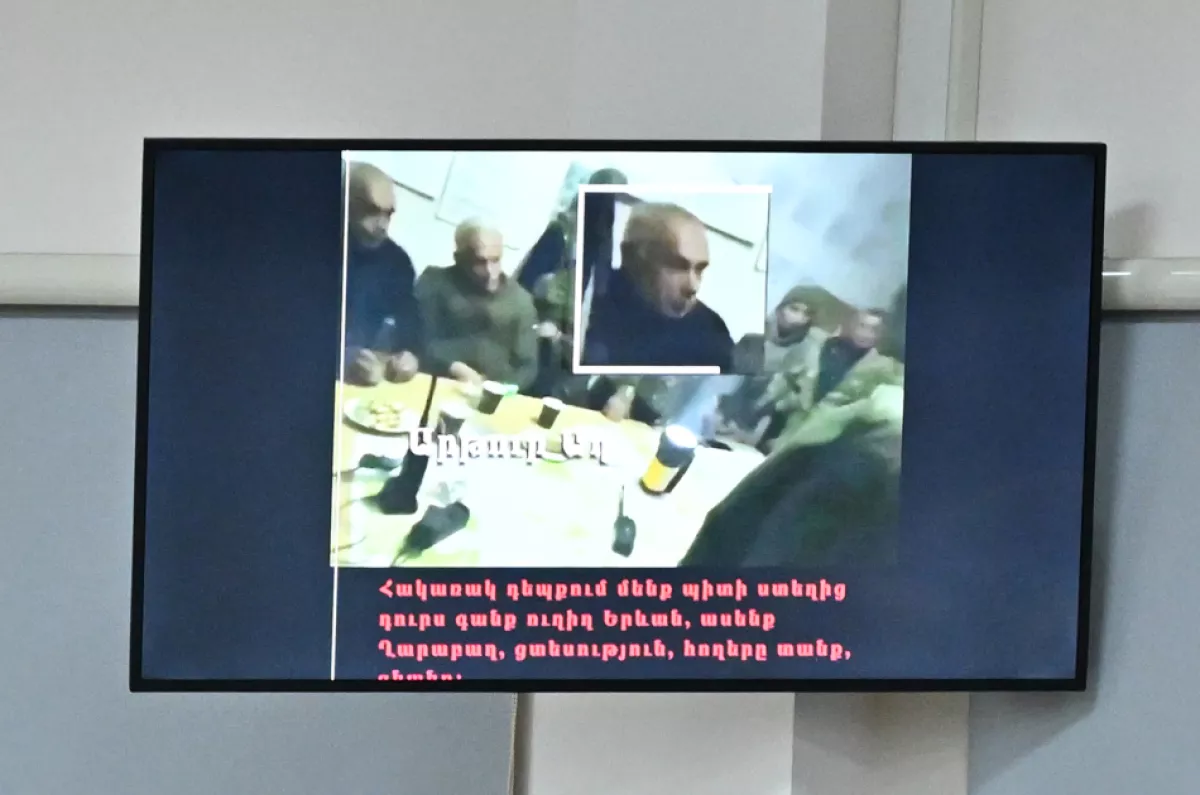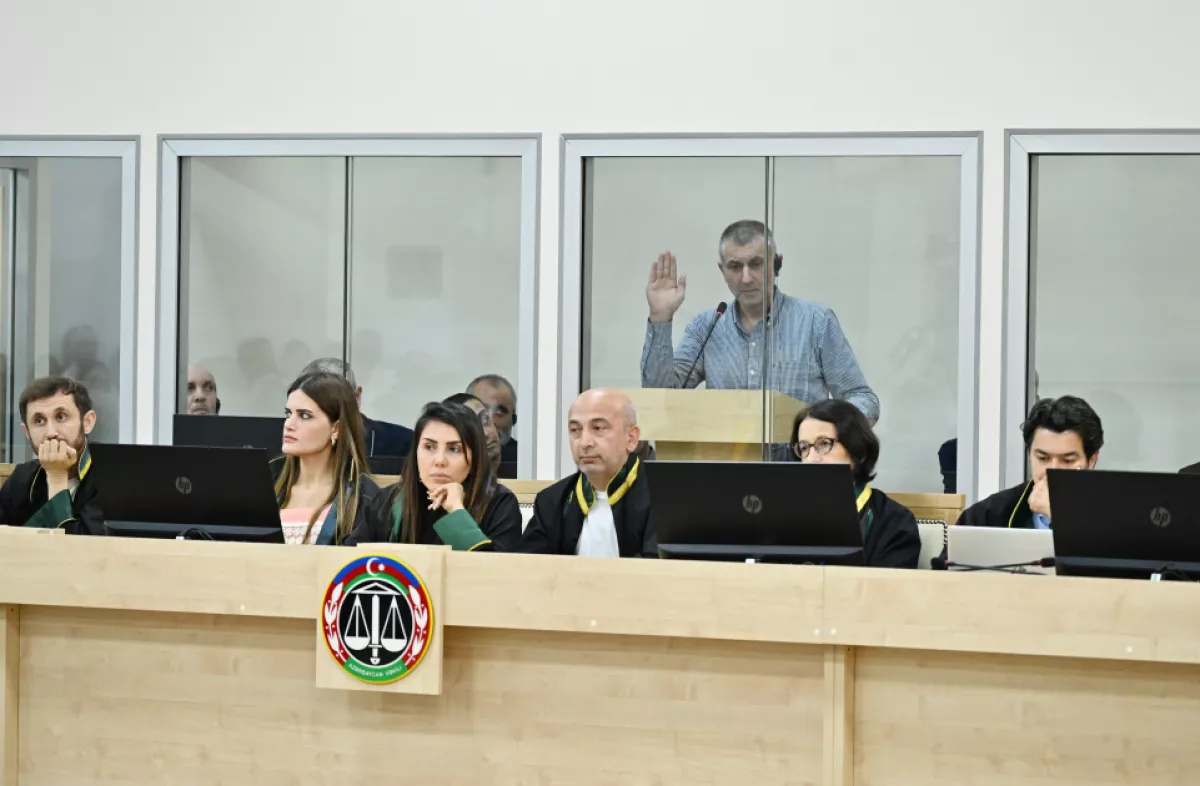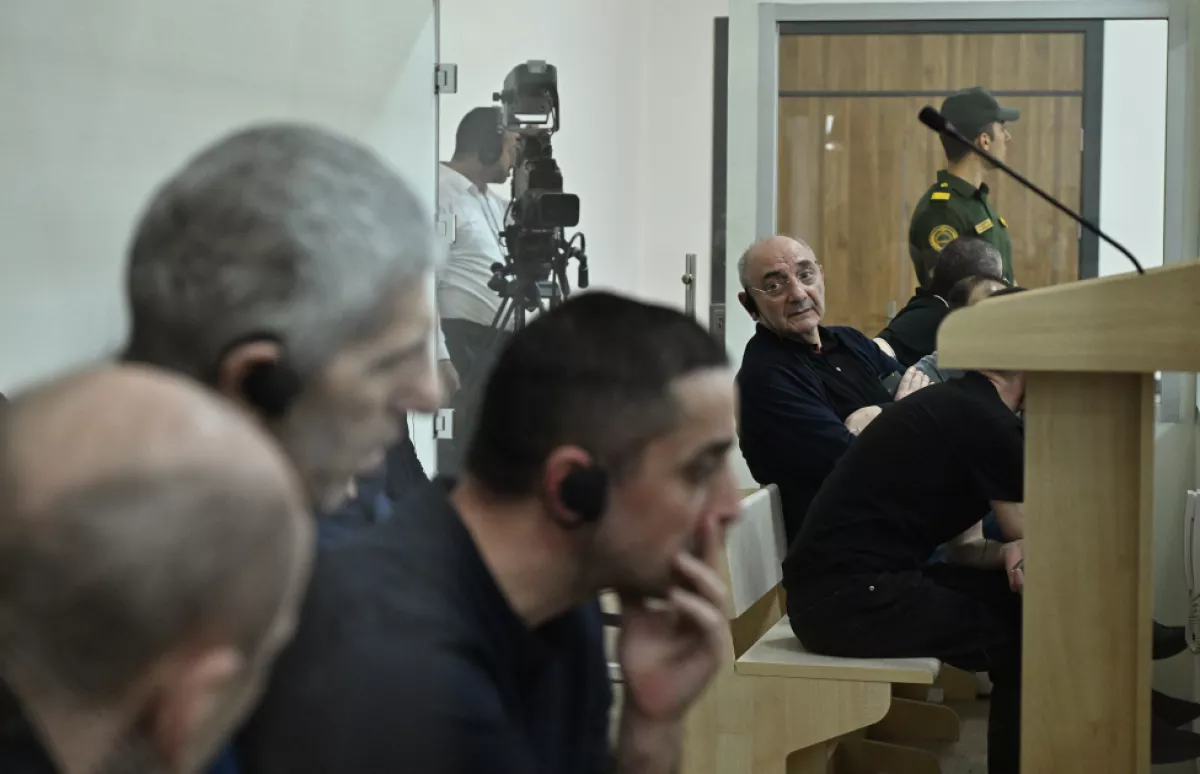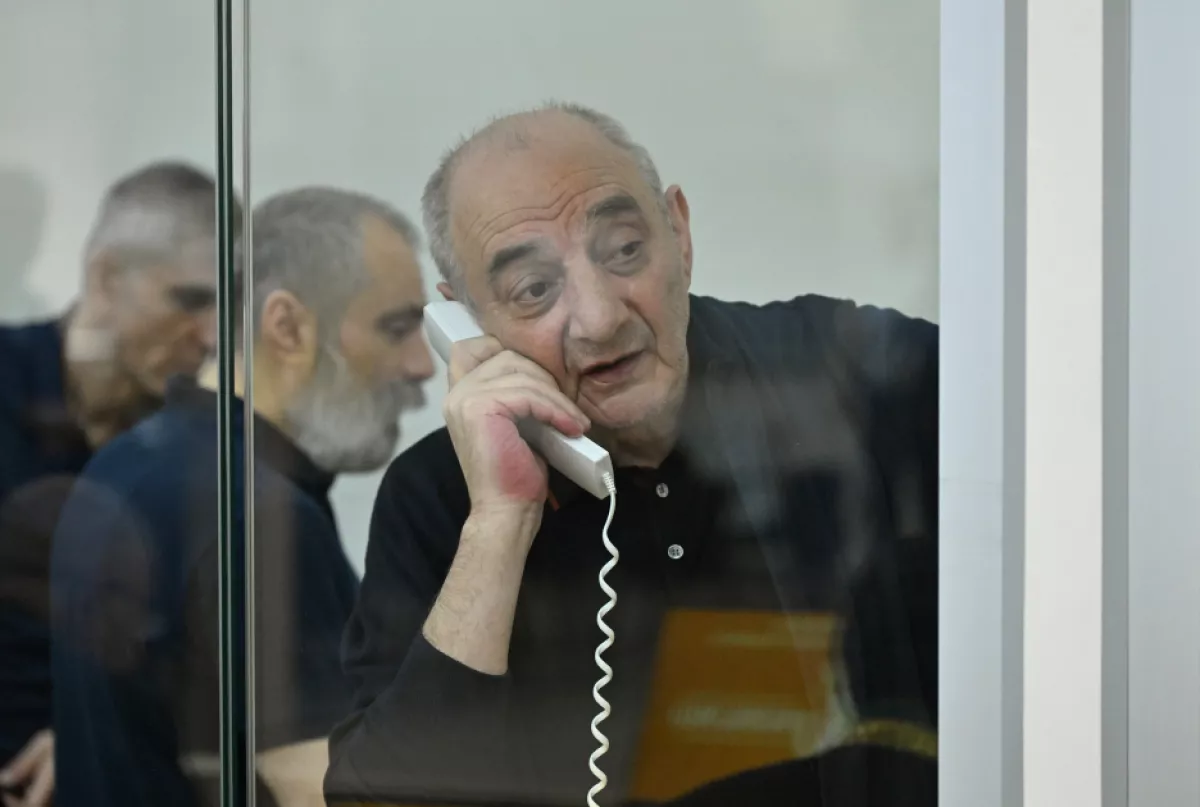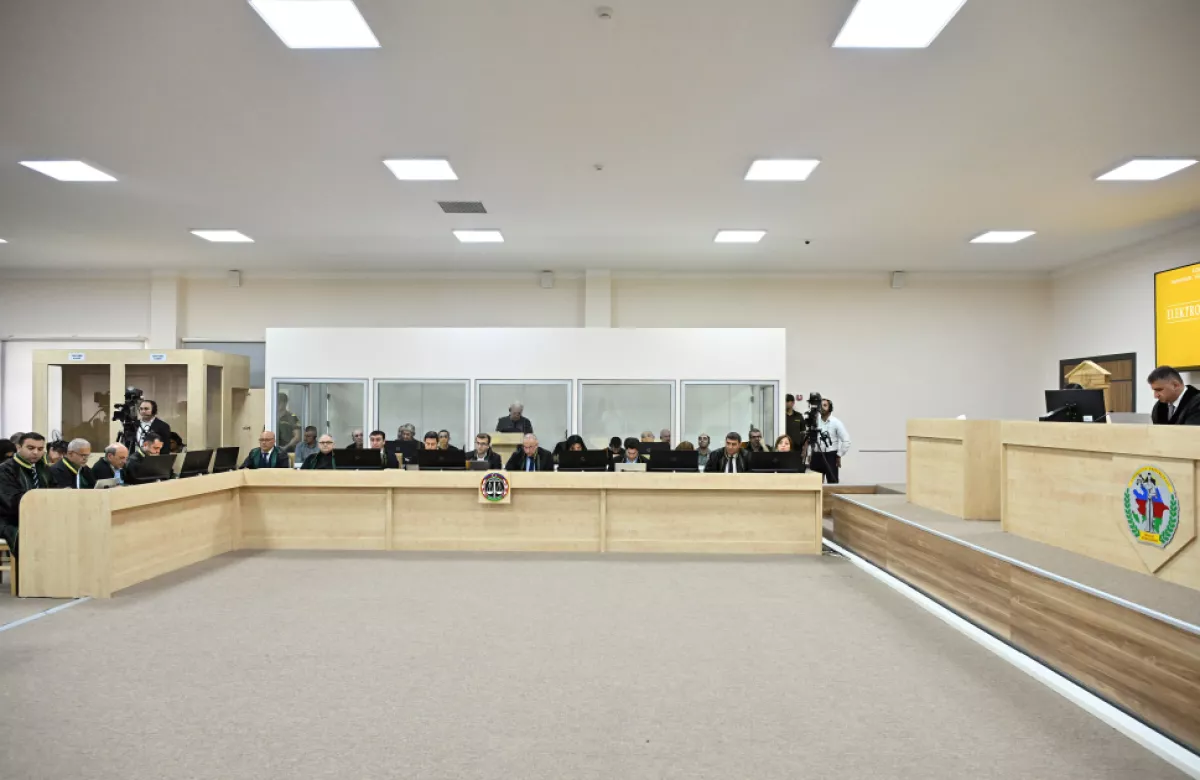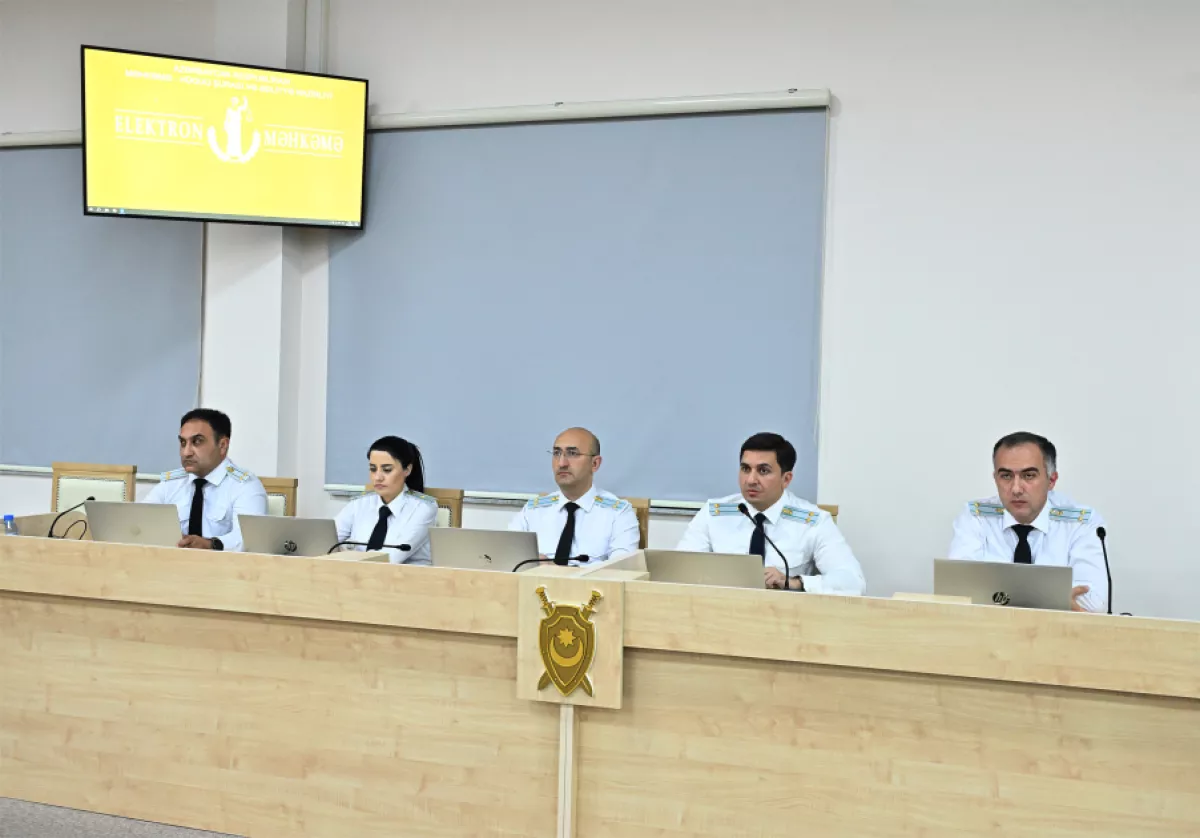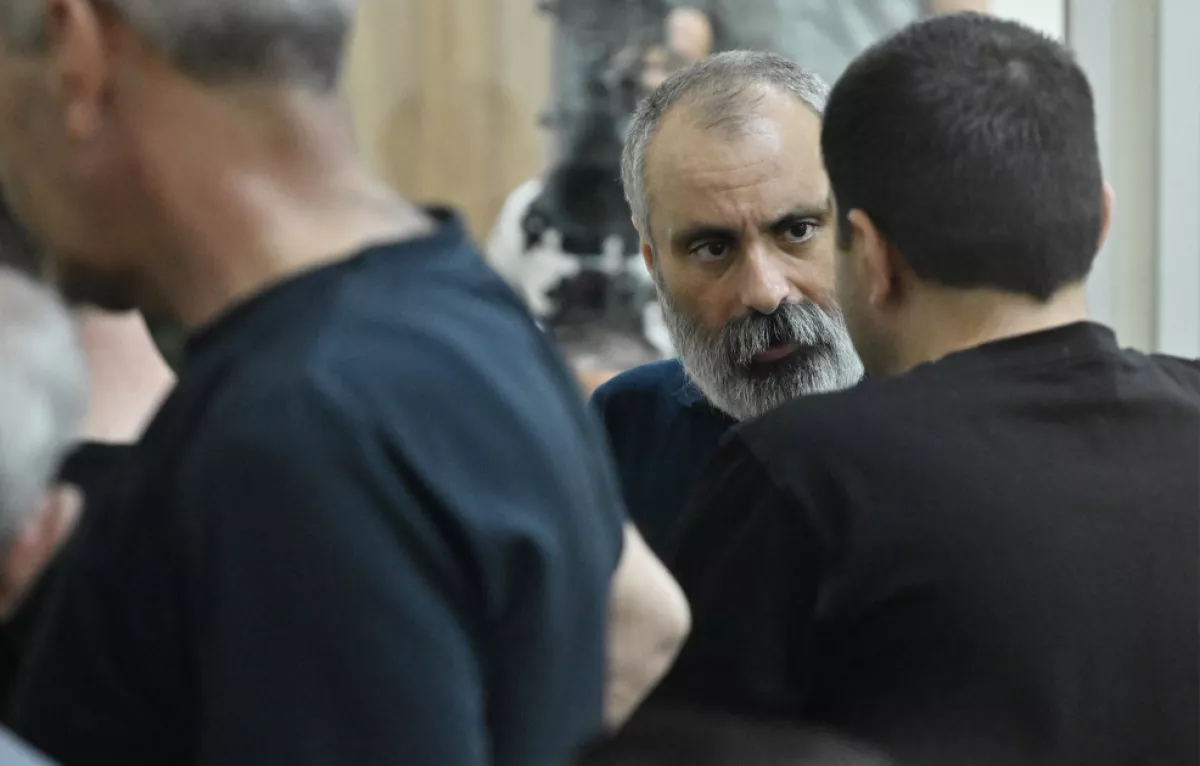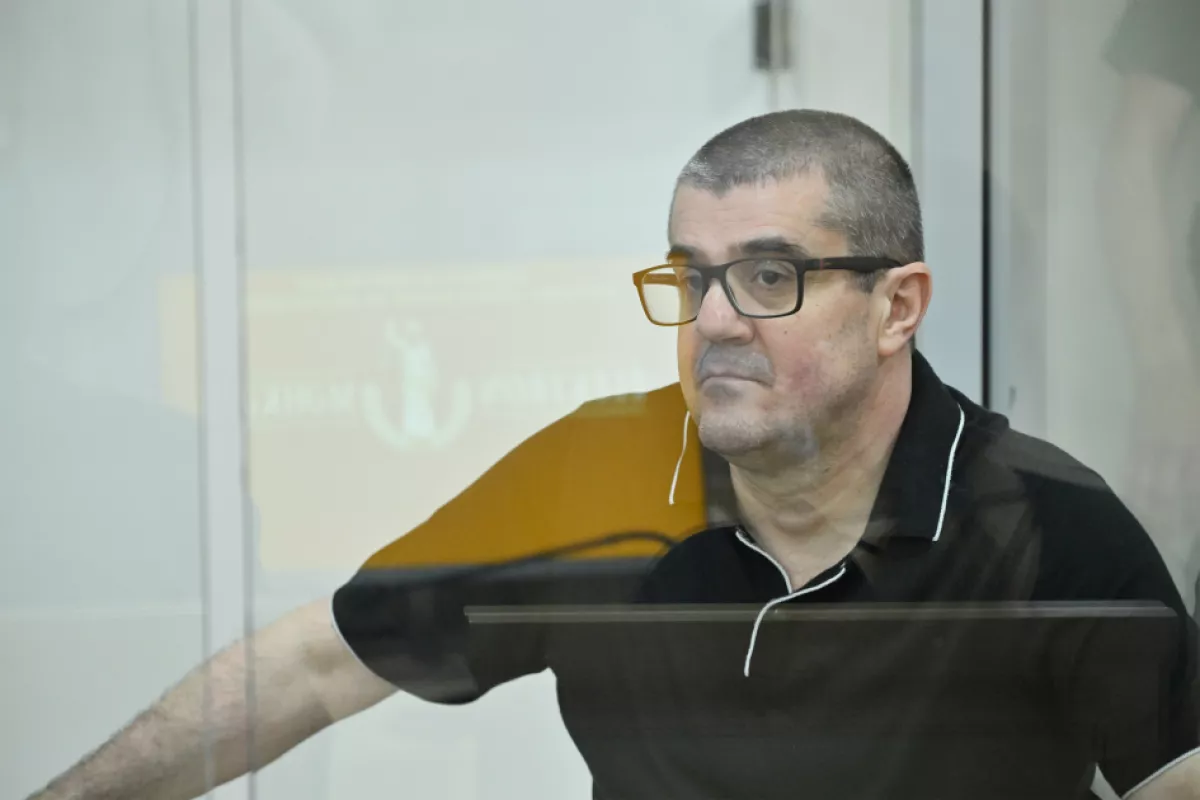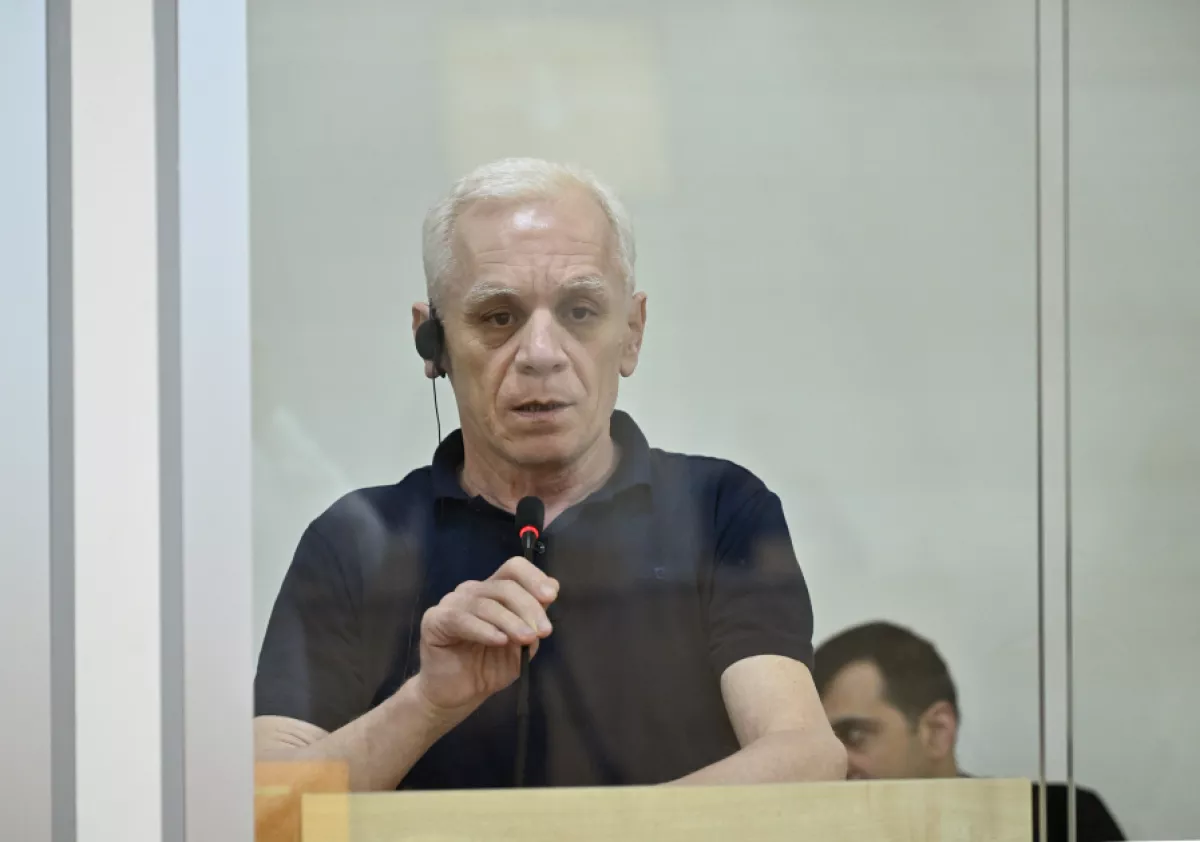Mnatsakanyan admits involvement of foreign fighters in Karabakh war Baku trial / PHOTO
The open court session in the criminal case against Arayik Harutyunyan, Arkadi Ghukasyan, Bako Sahakyan, Davit Ishkhanyan, David Babayan, Levon Mnatsakanyan, and others - citizens of the Republic of Armenia - continued on June 13. The defendants stand accused of crimes against peace and humanity, war crimes, including the planning and conduct of aggressive warfare, genocide, violations of the laws and customs of war, terrorism, financing of terrorism, forcible seizure and retention of power, and numerous other offenses stemming from Armenia’s military aggression against Azerbaijan.
Held at the Baku Military Court under the chairmanship of Judge Zeynal Aghayev, with Jamal Ramazanov and Anar Rzayev (reserve judge Gunel Samadova) presiding, the session ensured that each defendant was provided with a translator in their native language and legal representation, Caliber.Az reports via local media.
The defendants, their lawyers, several victims and their legal successors, as well as the prosecutors representing the state, participated in the hearing.
During the hearing, the accused Levon Mnatsakanyan was asked the following questions by Nasir Bayramov, head of the department of the State Prosecution Protection Department of the Prosecutor General's Office.
According to Mnatsakanyan, he held the following positions, including “army commander” of the so-called regime in 2015-2018; “head of the emergency situations service” of the so-called regime in 2018-2019; “police department chief” of the so-called regime from June 2019- early June 2020. “I was then stripped from my duty and have not held any public position, retiring as a policeman,” he added.
Mnatsakanyan justified his "resignation", while responding to the statements of Sasun Mikayelyan, the chairman of Armenia’s Yergirabad Volunteer Union.
Responding to the question by order of which high-ranking was he dismissed from his duties, the accused replied – “by the order of the Armenian president, with the involvement of the Armenian prime minister.” He noted that Nikol Pashinyan was a prime minister, with Armen Sargsyan serving as a president at the time.
While answering the questions from state prosecutor, the accused noted that he was deployed to various areas at the request of “president” of the so-called regime Arayik Harutyunyan, during the 44-day war, which took place in 2020.
He said he was tasked by A. Harutyunyan twice to assist the local "authorities" in addressing security and civil defense matters and check the operational readiness of the artillery. Therefore, L. Mnatsakanyan was assigned to Hadrut, Sugovushan, and other areas.
Subsequently, the court examined another evidence, a video footage taken during the 44-day war, highlighting a military meeting taking place in a classroom in Shushakand, also featuring Levon Mnatsakanyan.
The video included discussions regarding launching an attack against the Azerbaijani military servicemen, where Samvel Babayan — former "defense minister" and former "security council secretary" of the so-called regime, who served as its "army commander" from 1994 to 2000 — issued instructions to the military and outlined a plan for an offensive operation aimed at encircling the opponent in Shusha. Samvel Babayan stated that "there is a mined area shown on the map, don't cross that mined area."
Addressing the military servicemen, Samvel Babayan stated: “Your actions tomorrow will decide the fate of the entire Karabakh.”
“Whoever receives an objective must accomplish it. This is not an official operation," Samvel Babayan said, "and if it doesn’t take place, we’ll have to say goodbye to Karabakh and retreat to Yerevan. It’s also unclear whether Azerbaijan will even allow us to leave."
He emphasized that speed was the top priority, stressing the need to seize key positions swiftly. Babayan stated that they would arrive on-site at 6:00 a.m., and the artillery would begin firing at 7:00 a.m., marking the start of the offensive.
Confirming his participation at the meeting, Mnatsakanyan noted that the footages were taken on November 5, 2020.
The meeting was chaired by Samvel Babayan, who was also the man in charge. The meeting was also attended by the “commanders” of three battalions. Mnatsakanyan noted he had arrived to the area one day before. He added that the goal was to block the roads in the direction of Chanagchi, Dashalti, and Shusha, with the help of three battalions. According to the plan, the forces had to be divided, and the opponent had to be deprived of all types of supplies. According to the chair of the meeting, a successful operation would make it easier to defend Shusha in the future. The operation should have started at 6 a.m. However, after the leadership left, the remaining commanders expressed their concerns over the plan, saying they were unprepared and were given no time for preparation.
L. Mnatsakanyan noted that the operation had not taken place. He added that Arthur Harutyunyan was made in charge of Shusha direction.
The state prosecutor, referring to the defendant's previous statements, recalled his views that the Iskander M, Smerch, Elbrus, and Tochka U missiles were not in the arsenal of the so-called regime's "army." The accused was then asked about who ordered to hit the Azerbaijani residential areas and the civilian infrastructure.
“These weapons are in disposal of the artillery department of the Missile Troops of the Armed Forces of the Republic of Armenia and they manage them. I have no clue about the latest regulations. According to the legislation of the Republic of Armenia, a package of documents is approved by the Security Council of the Republic of Armenia," L. Mnatsakanyan replied.
Underlining that the so-called regime had not signed any agreements with foreign countries regarding arms imports, Mnatsakanyan said: “Let me speak about the period when I was the 'army commander' (2015–2018). No agreements were signed with any country, and no weapons or ammunition were imported. All arms were obtained from the Armenian armed forces.”
In response to questions from Fuad Musayev, a representative of the Prosecutor General’s Office, accused Levon Mnatsakanyan mentioned that individuals of Armenian origin had arrived from Russia, Lebanon, the United States, France, Syria, Canada, Australia, Spain, and several European countries to fight in Azerbaijan’s previously occupied territories.
Regarding the April battles, Mnatsakanyan said he personally gave the order to deploy reserve units in the Aghdam and Khachinchay directions.
Levon Mnatsakanyan also named key figures responsible for artillery operations during the April battles, adding: “The brigade commander was Grigory Sahakyan, and the artillery chief was Gena Baghdasaryan.”
When asked about visits by Armenian officials, he confirmed that shortly after the April battles in 2016, then-President of Armenia Serzh Sargsyan visited the occupied territories. “The President of the Republic of Armenia visited Karabakh every year, also inspecting military units as part of these visits. 2016 was no exception,” Mnatsakanyan mentioned.
Mnatsakanyan said he also accompanied the Armenian President during those visits when he was the “army commander”.
The accused underscored that several servicemen involved in the April battles had been awarded for their participation.
In response to questions about mine maps, Mnatsakanyan stated: “Maps of mined areas were sent ‘up’ to the Engineering Troops Department of the Armenian Armed Forces, but I am not sure about the mine placement forms.”
Afterwards, State Prosecutor Vusal Abdullayev questioned another accused David Manukyan, who however, avoided answering most of the questions.
The accused denied his involvement in the forced expulsion of Azerbaijani civilians and, when asked about the planting of mines, he responded: “We planted them to prevent anyone from crossing the front line.”
The next court session is scheduled for June 19.
The defendants — Arayik Vladimiri Harutyunyan, Arkadi Arshaviri Ghukasyan, Bako Sahaki Sahakyan, Davit Rubeni Ishkhanyan, David Azatini Manukyan, Davit Klimi Babayan, Levon Henrikovich Mnatsakanyan, Vasili Ivani Beglaryan, Erik Roberti Ghazaryan, Davit Nelsoni Allahverdiyan, Gurgen Homeri Stepanyan, Levon Romiki Balayan, Madat Arakelovich Babayan, Garik Grigori Martirosyan, and Melikset Vladimiri Pashayan — are charged under the following articles of the Criminal Code of the Republic of Azerbaijan: Article 100 (planning, preparing, initiating, and waging a war of aggression); Article 102 (attacking persons or organizations enjoying international protection); Article 103 (genocide); Article 105 (extermination of the population); Article 106 (enslavement); Article 107 (deportation or forced displacement of population); Article 109 (persecution); Article 110 (enforced disappearance of persons); Article 112 (deprivation of liberty contrary to international law); Article 113 (torture); Article 114 (mercenary service); Article 115 (violation of the laws and customs of warfare); Article 116 (violation of international humanitarian law during armed conflict); Article 118 (military robbery); Article 120 (intentional murder); Article 192 (illegal entrepreneurship); Article 214 (terrorism); Article 214-1 (financing terrorism); Article 218 (creation of a criminal organization); Article 228 (illegal acquisition, transfer, sale, storage, transportation, and possession of weapons, ammunition, explosives, and devices); Article 270-1 (acts threatening aviation security); Article 277 (assassination of a state official or public figure); Article 278 (forcible seizure and retention of power, forcible change of the constitutional structure of the state); Article 279 (creation of armed groups not provided for by law); and other articles.




